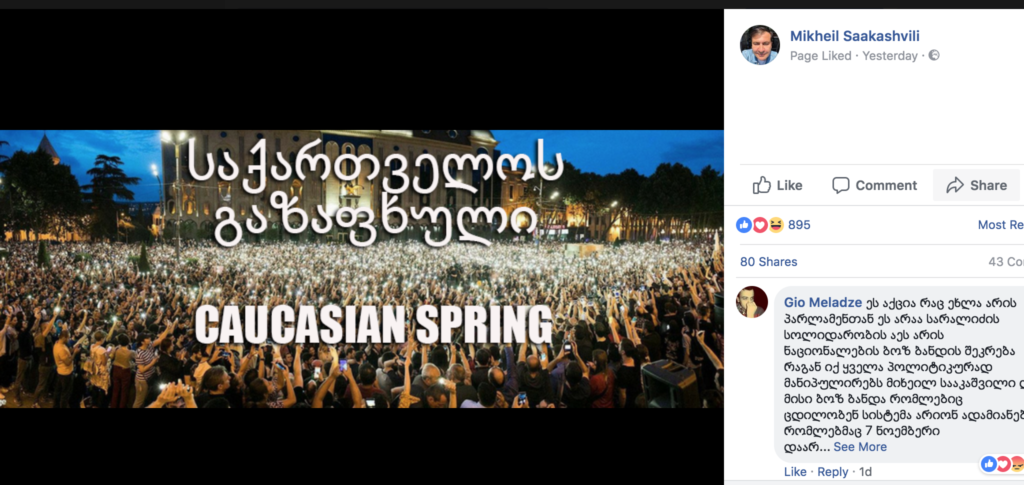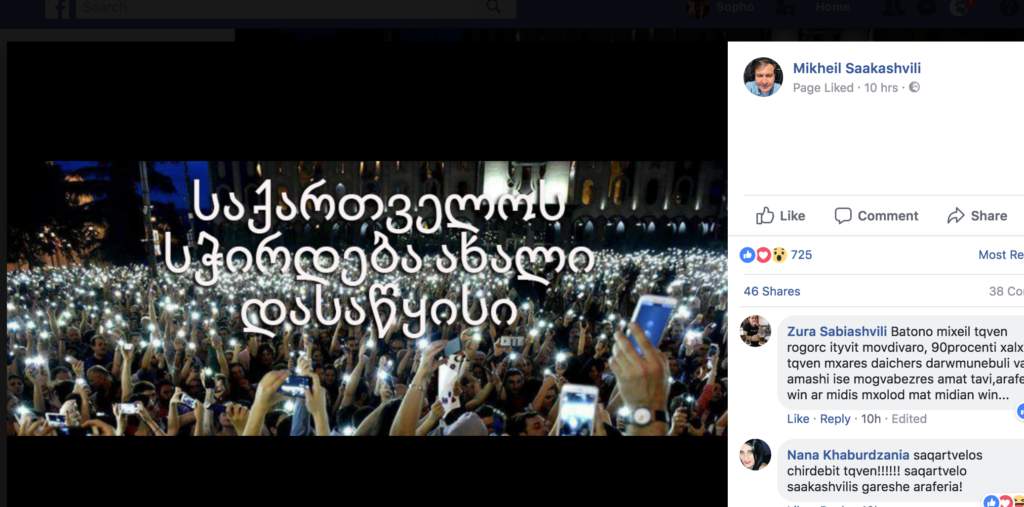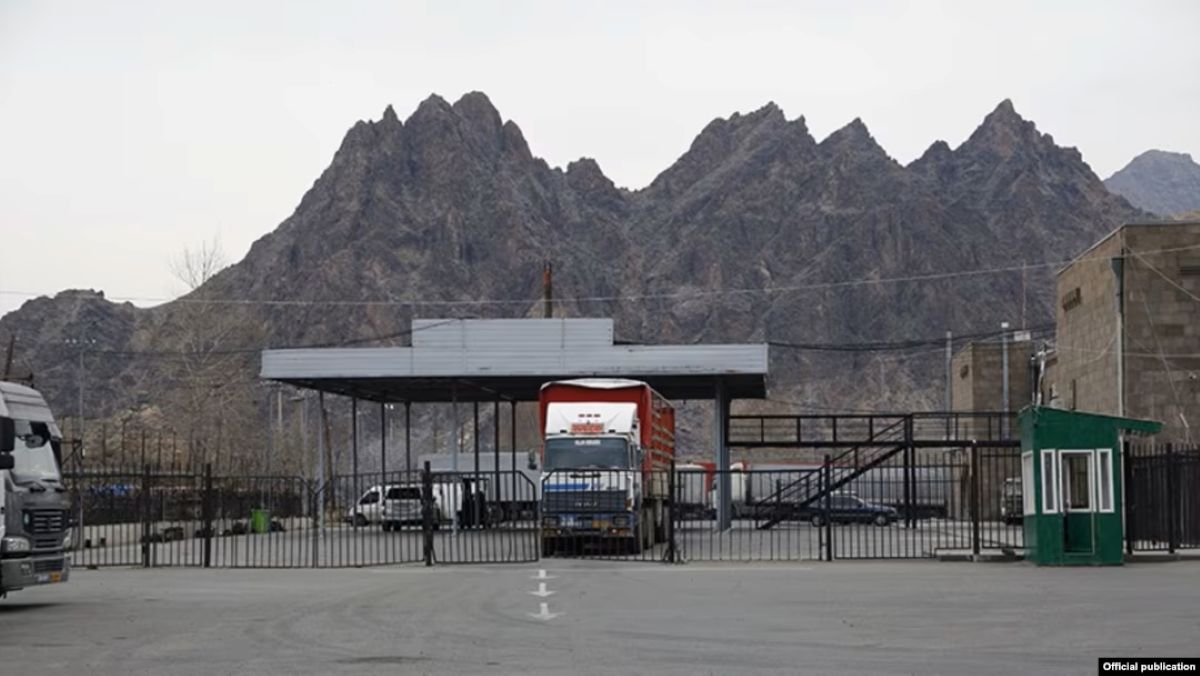Father of murdered schoolboy urges opposition to take to Tbilisi streets
Public protests in Tbilisi are taking on a new political colour, and 3 June may be the turning point. On 2 June, at a rally held late at night at the Parliament building, the Georgian opposition announced the launch of a new, large-scale protest.
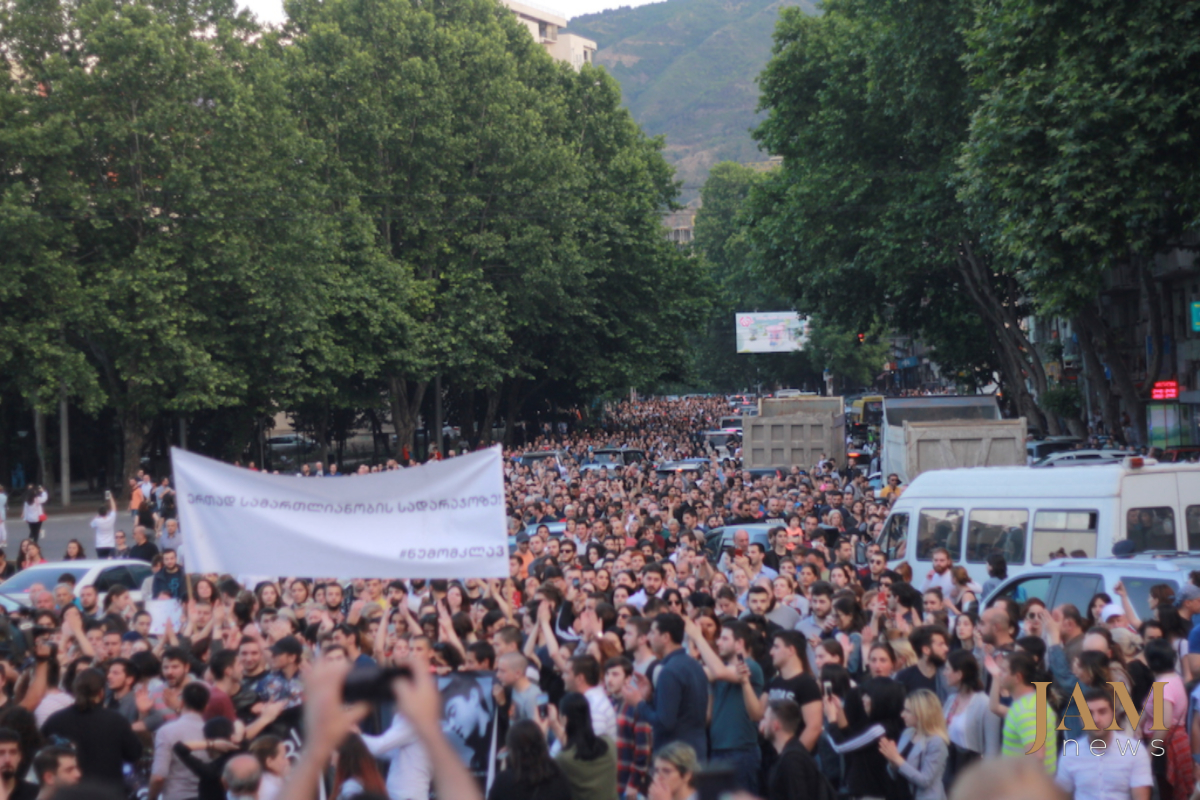
If the rally organizers were until now trying to distance themselves from politicians so as not to allow politicization of the process, then late on 2 June everything might have changed: they appealed to all political parties and called upon them to unite in the struggle against the ruling Georgian Dream party.
The rallies began on 31 May, just after the court made a verdict in the case of the brutal murder of two 16-year-olds Levan Dadunashvili and David Saralidze. The two schoolchildren succumbed to numerous knife wounds during a fight with their peers on 1 December last year. The murder occurred in the afternoon on a crowded Tbilisi street in front of several witnesses.
The court ruled that neither of the two boys who were arrested had killed David Saralidze. This decision confirmed the fears of Zaza Saralidze, David’s father, who for several months claimed that the real killers of his son are at large due to a cover up by the prosecutor’s office.
Three days of protests saw the resignation of Georgia’s Chief Prosecutor. The country’s Prime Minister, who came to address the protesters, was booed and thrown with plastic bottles.
The protesters who attended the rallies over the past three days were mainly young people who were demanding an ‘honest’ investigation into the killing of the two adolescents.
Representatives of the public, as well as relatives of people killed in various circumstances and who did not agree with the findings of the investigation, spoke before the demonstrators.
Meetings began in the afternoon and lasted into the night. Zaza Saralidze and a small group of supporters spent the nights in tents set up in front of the parliament building.
The protesters and organizers continuously dispelled accusations made by the ruling party that the United National Movement opposition party, which is led by ex-President Saakashvili, is trying to use the rally to take advantage of Saralidze’s grief and come to power. The rally did not give the floor to the opposition, reiterating that this is a civil, not a political protest.
• Violence in Georgian schools – where does it end?
However, events took a turn late on 2 June. Zaza Saralidze and his friend Zviad Kuprava, who had led the protests side-by-side, called on the opposition to go out onto the streets.
“I ask all political parties, all representatives of the elite, all citizens, all full citizens, all peasants, all small people like me, to support me. But not only me, but all parents, who’s children were murdered – every mother and father. We will unite forces, because today the government once again tried to spit on the soul of the deceased. We must destroy this system,” Saralidze said.
Zviad Kuprava called on opposition parties to gather at the office of the National Democratic Party for consultations. Together with Saralidze and Kuprava, Malkhaz Machalikashvili, the father of Tamerlan Machalikashvili, a young man killed in a counter terrorism operation last year, has also joined the protests. The operation from last year brought forth controversy in Georgia at the time.
Very soon after the address, the leader of the former ruling party, the United National Movement, Nick Melia, the leader of the New Georgia party, Georgi Vashadze, the leader of the State for the People Movement, Nikoloz Machutadze, and the leader of the National Democratic Party Bachuki Kardava arrived at the office of the National Democratic Party, joined by Zviad Kuprava.
After a brief consultation, they appeared in front of the protesters to announce a big rally with the participation of political forces on Saturday, 3 June at 18:00. The opposition promised to announce its specific plans at the rally.
However, not all opposition parties responded. European Georgia, which consists of former members of Saakashvili’s United National Movement and which has the largest opposition faction in parliament, took a more cautious approach to the events. The leaders of this party did not participate in consultations in the office of the National Democratic Party, but came to the parliament building later at night to talk with the father of the murdered teenager Zaza Saralidze.
The party believes that the rallies must continue ‘so that the authorities do not consider the protest finished’. However, their approach differs from the opposition parties who radically exclude the possibility of any negotiations with the authorities and demand the resignation of the government and the appointment of early parliamentary elections.
The European Georgia party believes that, along with the rallies, the opposition should be involved in the process of electing and appointing the chief prosecutor. The party also considers it necessary to create an independent parliamentary committee, which would deal with the case of the murdered teenagers and identify violations committed by the investigation.
Social networks on the rally
The opinions of rally supporters have been divided since the politicians joined the rallies.
Some are confident that the organization of protest events will be transferred into the hands of the United National Movement and its leader Mikhail Saakashvili. Others refuse to take part in the rallies, since they were joined by representatives of less popular and even discredited political parties.
Still, others believe that the protest should be supported in any case, since the rule of Georgian Dream led by its, until recently, informal leader billionaire Bidzina Ivanishvili can only be replaced by joining forces and ‘now is not the time to evaluate specific politicians’.
A new political leader?
The situation at the parliament building, where representatives of the somewhat half-forgotten political parties gathered yesterday late at night, reminded many of the 1990s. The feeling of déjà vu was also strengthened by the name Zviadi which some were chanting. The name was also that of the first Georgian president Zviad Gamsakhurdia, deposed in the early 1990s. The name was called out at rallies which were held for the independence of Georgia from the Soviet Union in the late 1980s – early 1990s.
But today’s protesters, of course, have Zviad Kuprava in mind, a man of obscure public fame until recent events.
Former police officer Kuprava is a relative of Zaza Saralidze, who has acted as the main organizer of the events until now. His speeches were so emotional that by the second day of the rallies his voice had gone.
‘A new political leader’ – some journalists nominated Kuprava yesterday
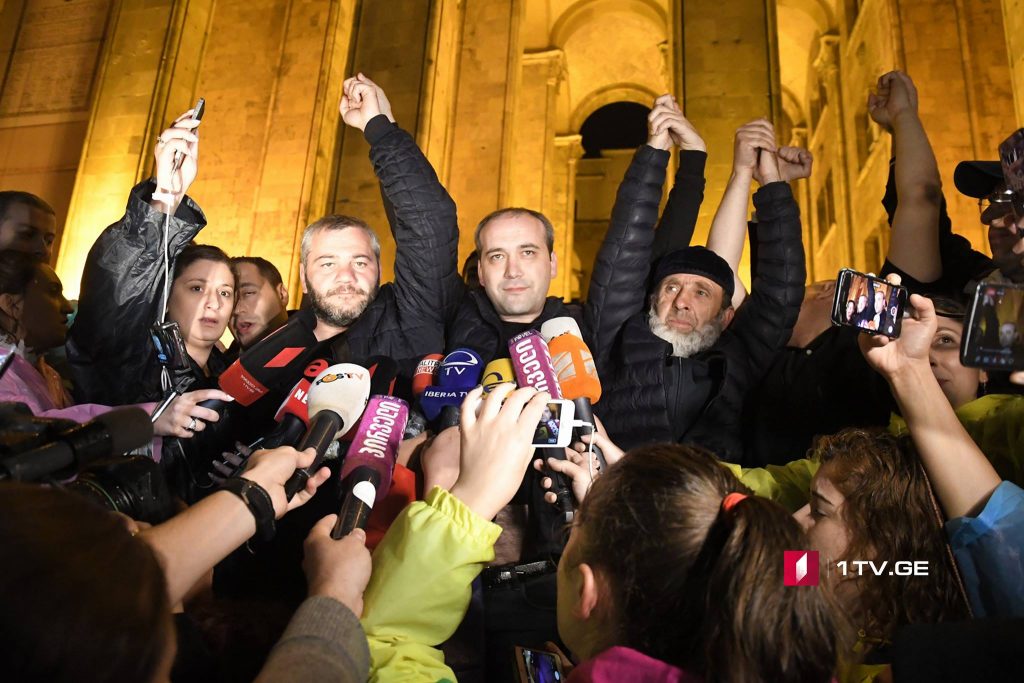
Kuprava can be seen as a divisive figure. The authorities are trying to discredit him by claiming that Kuprava is a supporter of Mikhail Saakashvili and the United National Movement. A post containing his photo taken with ex-President Saakashvili has gone viral on the internet. However, Kuprava denies any connection with Saakashvili’s party.
Saakashvili, who, after his expulsion from Ukraine, is in the Netherlands, has expressed support of the protest via several broadcasts on the air of the popular Rustavi-2 television channel.
His Facebook page has several photos of the rally in Tbilisi. His first cover photo post had the inscription ‘Caucasian Spring’, and later ‘Georgia needs a new beginning’.
